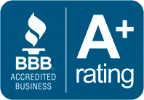How Do You Choose a Reliable Heating Oil Supplier in Manhattan?
With dozens of suppliers in the NYC region, the real question isn’t just who delivers—it’s how to choose a provider you can trust when winter hits.
Here’s what to evaluate:
1. Do they specialize in Manhattan heating oil?
Delivering heating oil in Manhattan is not like delivering anywhere else. Reliable suppliers understand:
-
One-way streets
-
Limited parking windows
-
Delivery-hour restrictions
-
High-rise access challenges
-
Fuel demand cycles for co-ops, multifamily, and mixed-use buildings
A supplier with a true Manhattan footprint will have dedicated routes and drivers familiar with local logistics.
2. Do they offer No. 2 heating oil and Bioheat blends?
NYC requires cleaner-burning fuels citywide. To stay compliant and efficient, choose a supplier who provides:
These fuels lower emissions and keep your system running cleaner—reducing maintenance needs.
3. Do they offer automatic delivery with tank monitoring?
For properties that can’t risk outages—co-ops, brownstones, rental buildings—Manhattan automatic fuel delivery is essential.
Look for:
This ensures your building never goes without heat, even during peak demand.
4. Are technicians experienced with residential fuel oil systems?
A reliable supplier should have a service team familiar with:
Even if you have separate HVAC contractors, it’s beneficial when your fuel supplier understands the full system.
5. Do they offer clear pricing and flexible plans?
Transparent pricing matters, especially for multi-unit buildings. A strong supplier should offer:
If a company can’t explain its pricing structure, that’s a red flag.
6. Is their delivery fleet reliable and locally routed?
In Manhattan, timing is everything. Look for:
A strong delivery network keeps your fuel supply uninterrupted.
Why a Local Manhattan Heating Oil Partner Matters
Buildings in Manhattan have unique characteristics: older boilers, narrow mechanical rooms, seasonal fuel swings, and strict Manhattan building codes. A provider that knows the borough can deliver more than just fuel—they can deliver:
-
Accurate tank sizing recommendations
-
Faster delivery in high-demand periods
-
Maintenance for older oil tanks
-
Improved service coordination
-
Local support from drivers and technicians who know the neighborhoods
A supplier with true NYC coverage reduces risk for building owners, boards, and managers.
Frequently Asked Questions
How often should a Manhattan building receive heating oil?
It depends on building size, tank capacity, and weather. Automatic delivery adjusts to all three—eliminating guesswork.
Do Manhattan buildings still use residential fuel oil?
Yes. Thousands of co-ops, brownstones, and multifamily buildings rely on residential fuel oil (No. 2 heating oil) as their primary heat source.
Is Bioheat fuel available in Manhattan?
Yes. Most NYC suppliers now provide Bioheat blends as part of citywide emissions requirements.
Final Thoughts: What’s the Most Reliable Choice?
For NYC buildings, reliability comes down to more than simply getting fuel in the tank. Dense neighborhoods, older heating systems, and unpredictable winter demand make it essential to work with a supplier who understands the borough and can deliver on time, every time. The most dependable choice is a provider that offers automatic delivery, clear pricing, and proven experience serving Manhattan’s co-ops, multifamily buildings, and commercial spaces. When you partner with a company built for the city’s unique challenges, you protect your property, avoid runouts, and ensure consistent heat all season long.






Why Heating Oil Delivery Is Challenging in NYC — and How It’s Handled
Delivering heating oil to a suburban house on a wide street is one thing – delivering to a Manhattan brownstone on a narrow, parking-scarce block is another. In dense urban neighborhoods like New York City, heating oil delivery comes with unique challenges.
When Heating Oil Will Be Phased Out in NYC: The Real Timeline for Buildings
Heating oil is not being banned all at once in New York City — but it is being phased out in clear, enforceable stages. The phase-out of heating oil in NYC buildings began more than a decade ago with the elimination of the dirtiest fuel oils and continues through a series of enforceable deadlines that extend into the 2030s and beyond.